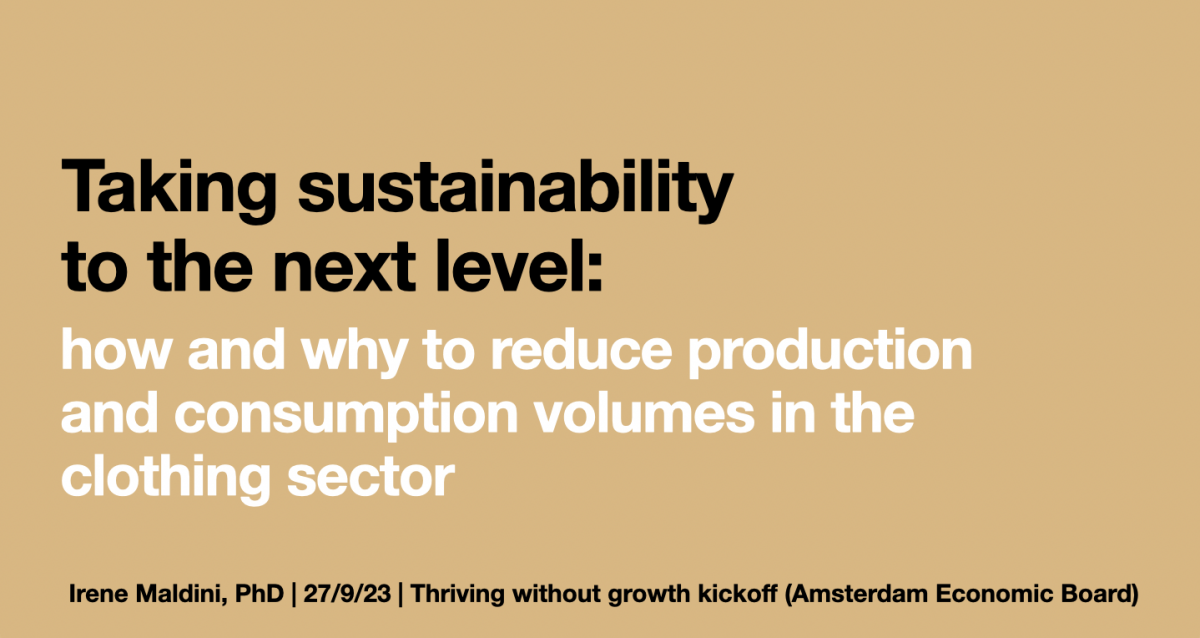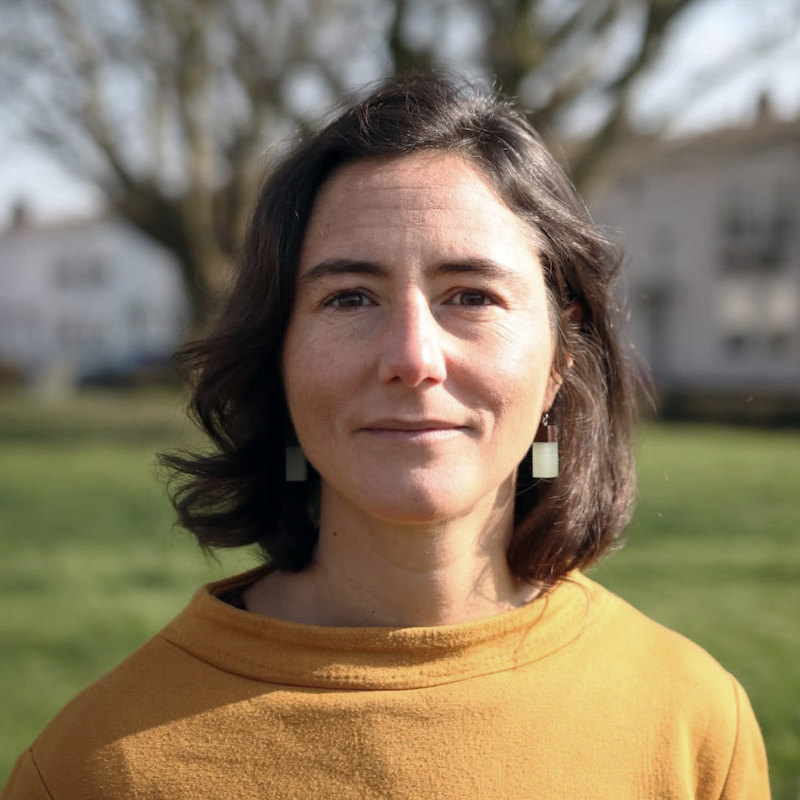Thriving without growth

The Amsterdam Economic Board launches a learning journey for clothing companies to reduce their production volumes.
Amsterdam has been a pioneer in recognizing the limits of growth and the need to reduce consumption levels in policy. In 2020, Amsterdam was the first city in the world to commit to the principles of the Doughnut Economy framework, including the notion of sufficiency in consumption volumes. Other cities have followed, such as Brussels, Copenhagen, Berlin, and Cambridge. Although the impact of such strategic decisions on the overall consumption levels of the city is questionable, the fact that local public servants have included a focus on consumption volumes (what really matters to reduce the local impact of the sector) are remarkable.
On 27th September, in the context of the kickoff of the Amsterdam Economic Board’s program (a commission by the national Ministry of Infrastructure and Water Management), our OsloMet colleague Irene Maldini introduced the importance of setting production reduction targets to local companies in her talk “Taking sustainability to the next level: how and why to reduce production and consumption volumes in the clothing sector.” Building her argument on the lack of evidence of the efficacy of well-known strategies in reducing production volumes (such as product lifetime extension, reuse, and shared use), Irene called the audience to overcome fear of economic decline to implement measures that can help confronting overproduction and overconsumption in the sector.

Companies participating in the program are committing to reduce their own production by 5%, a target set by the Amsterdam Economic Board. Participants were left with a few questions to reflect on, such as: Where to start? How will the board, staff, and clients react? Who are the right partners, such as suppliers and retailers, to implement a sufficiency-based strategy? How to establish KPIs for production reductions?
The learning journey is only at the start, during the next three months participants will read relevant texts, carry out given activities at the company, and share their progress and struggle in four sessions. The number of companies engaged is limited. However, the fact that this program is a commission of a national government to promote a post growth mentality among local businesses is groundbreaking. In keeping a focus on production volumes reductions and setting a quantitative target in line with scientists’ advice, the Amsterdam Economic Board has dared to do what the European Commission has consistently avoided in the development of the EU Sustainable and Circular Textiles Strategy: to openly discuss production volumes, the elephant in the room, and further starting to show the elephant its way out.